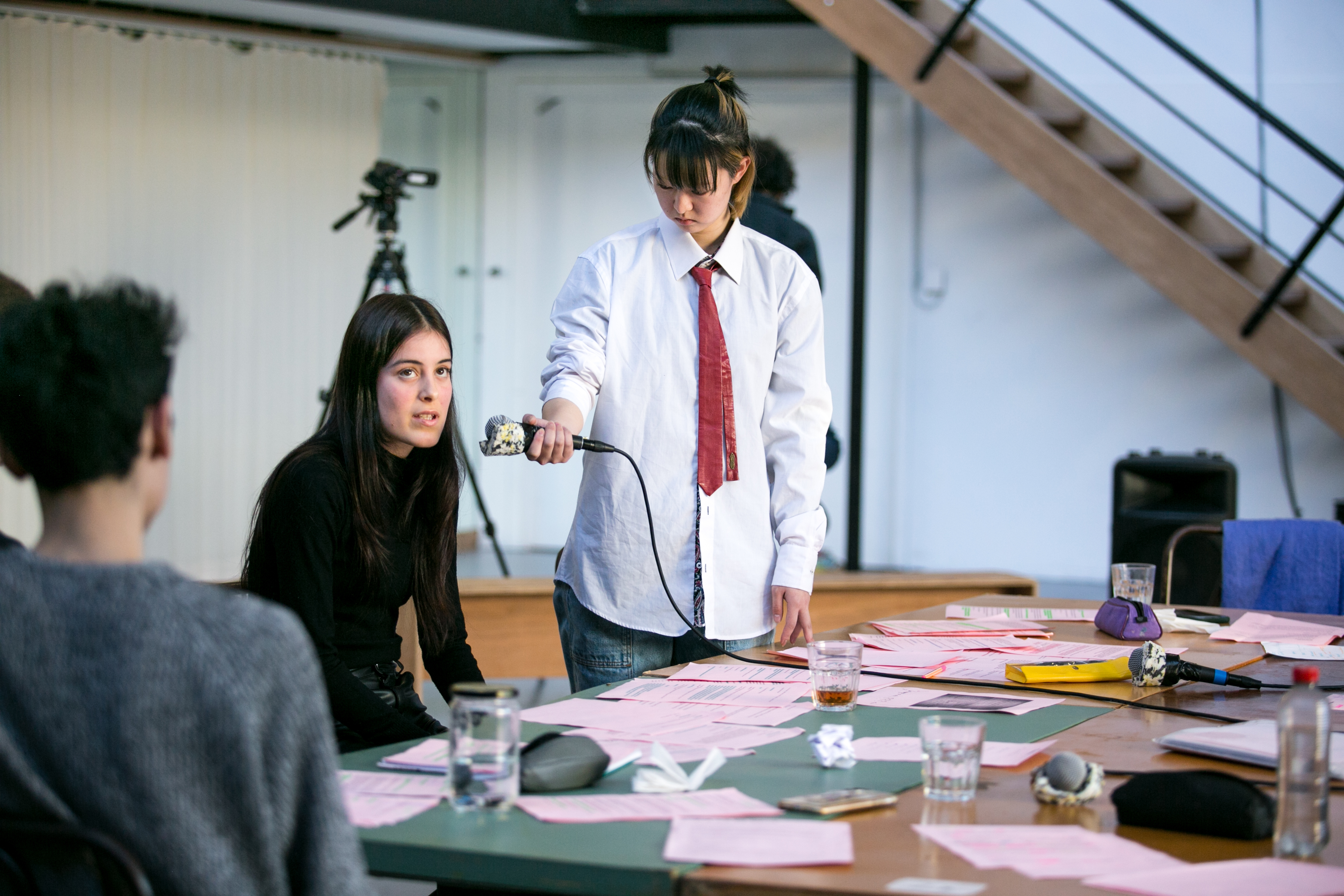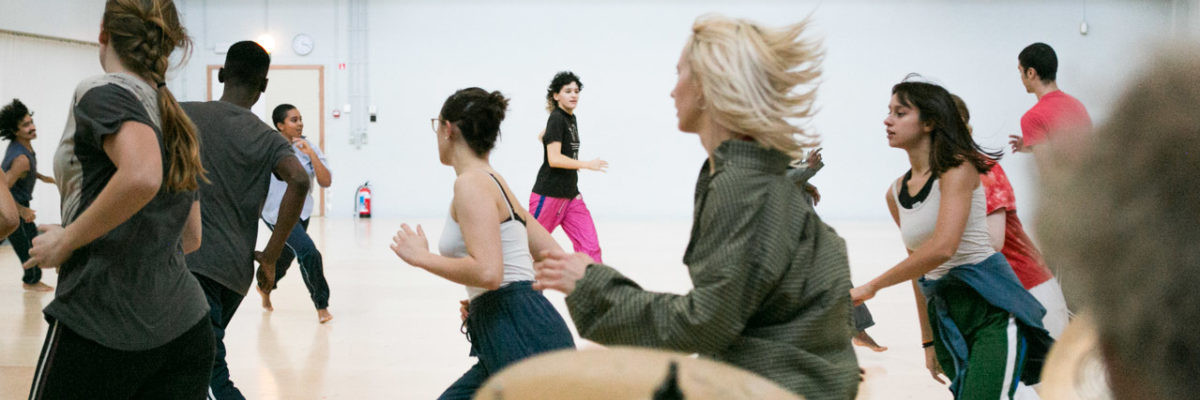Overview courses:
Music I (1st year) - 4 ECTS
Music II (2nd year): 4 ECTS
Interdisciplinary (3rd year) - 3 ECTS
Theatre I (1st year) - 5 ECTS
Theatre II (2nd year) - 5 ECTS
MUSIC
Music analysis
The central aim of the course is to develop a personal discourse about one’s musical experience. This happens through listening sessions on specific themes (classical, jazz, opera) in which one speaks about the main parameters of music, its performance and listening experiences in a general terminology, rather than in musical jargon.
The course is constructed over two years. In the 2nd year, the class is linked to the duet/trio task (see Student Creation II): students select a piece of music from a list of possibilities to make their choreography. The music analysis classes study and contextualise these works.
Singing
In the 1st and 2nd year, there is a weekly collective singing class. The classes train the individual voice and breathing, group singing, the experience of producing music.
A first approach focuses on relaxation and breathing, letting the voice vibrate through the body and the head, letting the voice be felt as a physical instrument. This makes a strong connection with the approaches of the body during the dance classes. A second approach is in the experience of singing though improvisational techniques (rhythmic, modal, words) which steer away from the pressure to sing ‘correctly’. A last approach focuses on the singing of polyphonic repertoire.
Rhythm
In the 1st and 2nd year, every week a rhythm class is organised. The class starts with building up a basis for a common approach of rhythm. With the help of the body, clapping, breathing, voice an a syllabic system (all organic approaches), several parameters are constructed: divisions of time, cycles, ternary and binary rhythms, oral traditions, collective games, polyrhythms, relation between ‘up’ and ‘down’ and its transcription in the western system of solfeggio.
From there on, the class continues with more complex structures from Indian, African and Afro-Cuban traditions, jazz, European folk music and contemporary classical music (Steve Reich, Olivier Messiaen). Rhythm is linked explicitly to the physical experience of space and time.
Music Project
In the first year, there is a workshop called ‘music project’, where a choreographer develops a short process linking dance and music. For this workshop, PARTS collaborates with musicians from the post-Master programme ‘Contemporary music’ of School of Arts Ghent.
Interdisciplinary
In the 3rd year, there are two workshops that go into specific topics related to music, such as sound recording and editing, alternative notation systems… Under ‘interdisciplinary’ there’s also an excursion and a workshop (see also ‘Artistic practice IV’) where an artist works on the intersection between choreography and another artform.
THEATRE
By concentrating intensively on a different performing art, one feeds the relation with one’s own art. The confrontation with texts and theatrical presence can help the student become a more creative, inventive, autonomous or shortly better dancer.
Different teachers use very different approaches: some work with existing plays, classic or contemporary, others with montages of texts or material written by the students. Sometimes the process is inherently collective; sometimes it starts more from the individual participants. But all approaches stress on the quality of acting, the ‘credible’ performance of texts and finding an open relation between character and performer.
In the 1st year, the aim is to let the student find calm and security is saying texts on stage. The student feels the gaze of the audience, but there is no way out through dancing, there is only text. In the 2nd year, the workshop builds further on the achievements of the previous year, but the material becomes more complex and challenging for the personality of the student, and work stronger towards the presentation of a final product.


